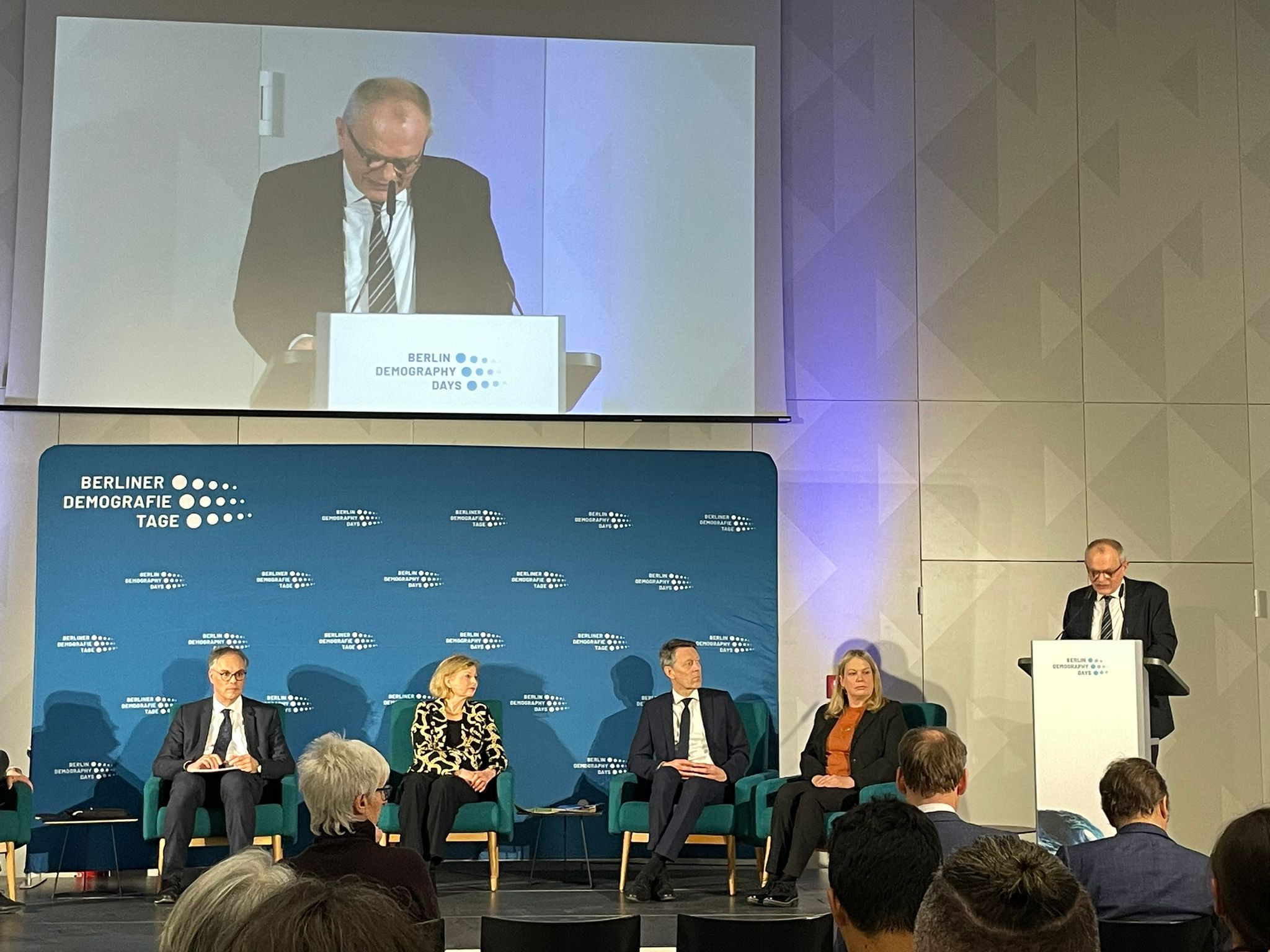Brussels, 7th March 2024
This week FAFCE participated in a webinar hosted by Population Europe, the European Commission-supported collaborative network. The event was titled: A Demographic Paradox? Gender Equality and Fertility Decline in the Nordic Countries.
The event on the 5th March focused on how egalitarian attitudes towards gender roles are linked to declining birth rates. One of the expert guests, Nicole Hiekel (Sociologist at the Max Planck Institute for Demographic Research), mentioned that family policies are key for fertility rates and stressed that “it is part of your freedom to choose how many children you have”. She also brought attention to the need of supporting parents in their unpaid work, particularly with regards to care, and reminded attendees that supporting children is the best investment in society.
This comes after FAFCE’s recent participation in Population Europe’s Berlin Demography Days in January (pictured above). Hosted in Germany, FAFCE’s Project Manager took part in the Evening Event on 23rd January at the “Futurium” in Berlin, organised by Population Europe’s Research Centre. The event started with the welcoming remarks from Dubravka Šuica, European Commission Vice-President for Democracy and Demography, and was followed by a policy panel titled: Escaping the Crisis Paradox Together. Speakers representing the political sphere and the world of science discussed the gap between research and political action and their lack of joint impact.
Vincenzo Bassi, President of FAFCE, said: “It is urgent to re-establish the intergenerational balance in Europe. To do so, we need to build a new paradigm to put the family at the centre of long-term public policies in Europe. Only a year ago, Pope Francis reminded the whole world of the crisis of the demographic winter, particularly visible in Italy and throughout southern Europe.
“The demographic issue concerns all, and it is appropriate, as well as necessary, to create institutional exchanges at the European and international level with the aim of promoting a new demographic spring. Family policies are a direct competence of every State. But this does not prevent them from taking initiatives by mutual agreement, across political alignments, for the exchange of good practices and for the promotion of family-friendly policies”.








